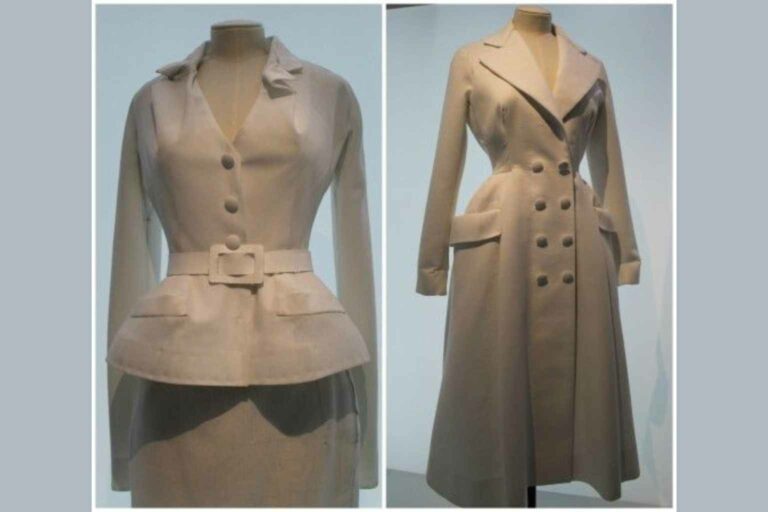
Sustainable Winter Coats: Introduction
Embracing Sustainable Winter Coats is a small yet impactful step toward a greener lifestyle. By choosing eco-conscious outerwear, we contribute to a more sustainable future. Each decision we make has a ripple effect, influencing others to join this positive change. It’s about the collective power of individual choices.
In this week’s article, we explore actionable ways to integrate Sustainable Winter Coats into your wardrobe. Discover how these small adjustments lead to significant environmental impact. Join us in this journey towards a more sustainable and stylish winter season. Read on to explore practical tips and discover the impact of Sustainable Winter Coats.
Winter Coats: History
Winter coats, with a rich heritage dating back centuries, have played a vital role in keeping us warm during cold seasons. From the elegant pelisses of the late 1800s to the opulent fur-lined coats favoured in the early 20th century, these garments have evolved alongside fashion trends.
In the 18th century, single- and double-breasted coats emerged from Spanish provinces, initially serving workers and peasants. Fast forward to the 1920s, when coats were opulent and designed for a sense of luxury.
A significant shift happened in the 20th century with the advent of Dior’s “New Look.” Coats became more structured and emphasised the female silhouette, moving away from the oversized styles of the past.
Interestingly, the first parkas were created from materials like sealskin and caribou. They were an essential part of Inuit culture, providing warmth and protection in harsh winter conditions.
As fashion evolved, so did winter coats, reflecting changes in society and culture.

This journey through time showcases the fascinating history of these essential garments. But what about their impact on the environment today? Read on to discover the environmental aspects of non-sustainable winter coats.

Non-Sustainable Winter Coats: Environmental Impact
Manufacturing non-sustainable winter coats exerts a heavy toll on the environment. The process consumes vast amounts of water, with one cotton coat requiring over 6,800 litres. Harmful chemicals and dyes used in production pollute water bodies, posing threats to aquatic life. These coats are often made from synthetic materials like polyester, derived from non-renewable petrochemicals. Their production contributes significantly to greenhouse gas emissions.
Moreover, the widespread use of plastics in winter coats leads to microplastic pollution, affecting both terrestrial and aquatic ecosystems.
The poor labour practices prevalent in some manufacturing hubs add a social dimension to the environmental impact. Workers may face unsafe conditions and low wages. Additionally, the long supply chains of non-sustainable coats result in high energy consumption and increased emissions from transportation.
Distribution further compounds the problem, with coats being shipped across the globe, emitting additional greenhouse gases. The disposal of non-sustainable coats contributes to textile waste, which is a significant challenge for landfills.

Embracing sustainable alternatives offers a way forward. Next, you will discover how ethical winter wear reduces these environmental burdens and supports positive social change. Learn more about sustainable choices for a greener, more stylish winter wardrobe.
Sustainable Winter Coats: What to Look For
Choosing a sustainable winter coat is a positive step towards a greener wardrobe. Opt for materials like organic cotton, recycled polyester, and TENCEL™ Lyocell, which have lower environmental impacts compared to conventional options. These fabrics use less water, energy, and chemicals in production, reducing their overall carbon footprint.
Look for coats with certifications like GOTS (Global Organic Textile Standard) or RDS (Responsible Down Standard). These ensure that the materials used are sourced ethically and with minimal environmental impact. Additionally, consider brands that prioritise fair labour practices and transparent supply chains.
Consider the coat’s durability and timeless design. A well-made, classic coat can last for many seasons, reducing the need for frequent replacements. This not only saves resources but also reduces waste.
Support brands that employ circular fashion practices. Some companies offer take-back programs, allowing you to return old coats for recycling or upcycling. Or even better opt for pre-loved. This closes the loop on the garment’s lifecycle, minimising its environmental impact.

To further lower your cold weather footprint, next, you can explore our top three sustainable winter coat brands. These labels prioritise eco-friendly materials, ethical production, and innovative design. Embrace style and sustainability with coats that make a positive impact. Read on to discover your new favourite winter wardrobe.
Sustainable Winter Coats: Three of Our Favourite Brands
Whilst everyone knows about Patagonia and Finisterre, there are other brands that make great sustainable winter coats. With that in mind, below are three great brands that do sustainability and ethical business well.
Seasalt Cornwall
Seasalt Cornwall is a renowned British fashion brand celebrated for its commitment to sustainable and ethical practices. They specialise in creating high-quality clothing inspired by the natural beauty of Cornwall. Seasalt’s winter coats are no exception, combining style with functionality. Crafted from eco-friendly materials, these coats provide warmth while minimising environmental impact. With a dedication to timeless designs and eco-conscious production, Seasalt Cornwall offers a range of winter coats that embody their ethos of sustainability and craftsmanship.

Thought
Thought is a sustainable fashion brand that emphasises ethical practices and the use of organic and natural materials. While they offer a range of sustainable fashion items, their winter coats are particularly noteworthy. These coats are crafted with a focus on environmental responsibility and social consciousness. Thought’s commitment to ethical production methods sets them apart in the fashion industry. We love their Rosabel recycled polyester puffer coat and if you sign up to their mailing list, you get 20% off your first order!

Tentree
Tentree is a pioneering sustainable fashion brand committed to environmental conservation. For every item sold, they plant ten trees worldwide, contributing to reforestation efforts. They use eco-friendly materials like organic cotton and Tencel in their clothing, embodying a fusion of style and sustainability. Operating with transparency and ethical manufacturing practices, Tentree is a leading advocate for responsible fashion choices. We love their Daily Parka made from recycled materials. Best of all, the wonderful folks at Tentree have provided Play It Green members with a special 20% discount code. Simply use code PLAYITGREEN20 at checkout and claim your special green discount. (Valid until 22nd Dec).

Sustainable Winter Coats: Wrap Up
That’s everything for this week. Who would have thought that your winter coat could have such an impact on the environment? But it doesn’t have to be that way. By choosing sustainable brands or purchasing preloved winter coats, you reduce your impact on the planet and play your part in influencing others, including the fashion industry.
We hope our weekly tip has left you feeling empowered to make change and with that being said, we will see you next week!






